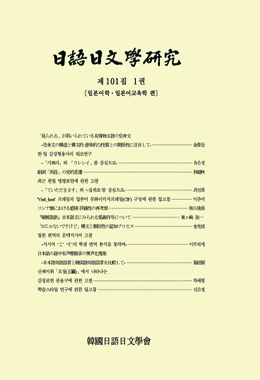近代初期の韓國と日本において「人生」という槪念は近代的な文學觀が形成される過程で主要な契機であった。當初「life」の飜譯語で登場した「人生」槪念は多義性を帶びていた。というのは、「life」というシニフィアン自體が流動的屬性を持っていたからである。それは、論じる人?が直面していた文脈によって樣?な文學觀を表出させる根據となっており、韓日近代文學の差異を表す要素となった。實際、韓日近代文學で「人生」槪念が導入されるのにあたって、大きな影響を及ぼしたとされるマシュ一·ア一ノルド(Matthew Arnold, 1822~1888)は、「人生」槪念だけでなく、「人生」と「文學」の關係を人間生活の普遍的な領域に位置づけることによって「人生」に關する立場の違いをもたらす余地を提供した。
たとえば、明治時代の日本で北村透谷は、世の中を有利にする方向で人生問題を論とした山路愛山の文學觀を「功利主義」と言い、それに對して個人の精神の自由を求める方向で「生命」を意味化しようとした。つまり、明治期の日本において「人生」槪念は、「個人」と「社會」の領域に分離され、「生命」の意味をめぐって兩者が衝突する場合もあった。一方、1920年代の朝鮮において「人生」は「個人」と「社會」の側面でそれぞれの文學觀を生み出す契機になりながらも、兩者は「生命」によって調和されるものと見なされていた。これは李光洙と金億が揭げた「人生のための芸術」に現れている。その意味で、「人生」槪念の確立と「生命」の定着過程を觀察する作業は、韓國と日本の近代文學が緊密な繫がりを持ちつつ、その一方で各國の文脈に基づいたかたちで展開された樣相を浮彫りすることにその意義があるといえる。
The concept of ‘human life’ in early modern Korea and Japan has created an important momentum to build modern literary thought. From the start, the concept of ‘human life’ contained a flexible attribute by ‘life’ as the signifier itself, and therefore it had polysemy. It also provided a basis for expressing various literary thought depending on the context of a writer and would be an element while showing points of difference from Korea and Japanese modern literature. Matthew Arnold, who has a strong influence on Korea and Japanese modern literature by introducing the concept of ‘human life’, has left rooms for differences regarding ‘human life’ while positioning the relationship between ‘human life’ and ‘literature’ into universal domain of man’s life.
During the Meiji period of Japan, Kitamura Toukoku arranged literary thought of Yamaji Aizan into ‘utilitarianism’ and tried to contextualize ‘life’ in the direction of expressing individual mental freedom. In this sense, the concept of ‘human life’ in the Meiji period of Japan embraced the domain of ‘individual’ and ‘society’ while including the conflicting points by both parties through ‘life’. Furthermore, ‘life’ in 1920s’ Joseon served as a momentum to create each of thought in terms of ‘individual’ and ‘society’ and also harmonize them together through ‘life’. This was represented by ‘art for life’s sake’ from Lee Kwangsu and Kim Uk. Therefore, it important to examine the concept establishment of ‘human life’ and settlement process of ‘life’ in that it shows the modern literature of Korea and Japan becomes the corner stone in the context of each country.


